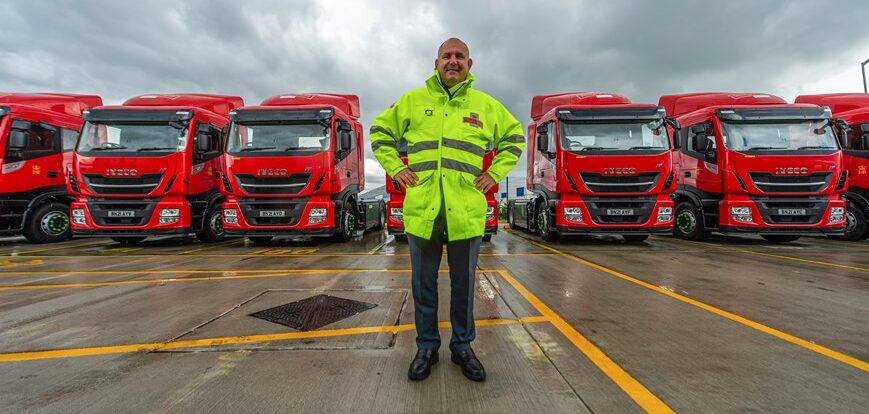The UK’s Royal Mail is expanding its use of low-emission vehicles with the addition of 29 gas-powered trucks, fueled by bio-compressed natural gas (bio-CNG), to its fleet. During the coming weeks, the trucks will be introduced to the company’s fleet in the northwest of England, joining the two that are already in operation.
At 40 tons, the gas-powered trucks are a similar size to typical Royal Mail heavy goods vehicles (HGV) and can be used on most roads and highways, with a range of 643km.
The new trucks will operate from Royal Mail’s Warrington, Chorley and Preston sites, which have refueling facilities nearby. The organization is banking on bio-CNG refueling facilities being expanded to other locations across the UK in the coming years.
Gas-powered vehicles were originally tested by Royal Mail in 2017. Following a successful trial, two trucks were introduced to the fleet on a permanent basis in 2019-20. It is estimated that these two trucks alone have saved the company approximately 107 tons of CO2 e annually.
Royal Mail claims that the use of bio-CNG in a vehicle can reduce CO2 emissions by around 84% compared with an average diesel vehicle, while also offering a 99% reduction in particulate matter compared with their diesel equivalents.
James Baker, chief engineer and fleet director at Royal Mail, commented, “We are committed to making changes to our operations that reduce our environmental impact. Bio-CNG is a significantly more cost-effective and lower-carbon alternative fuel to diesel for heavy goods vehicles. These vehicles enable us to deliver large payloads of parcels in the most environmentally friendly way possible.”


